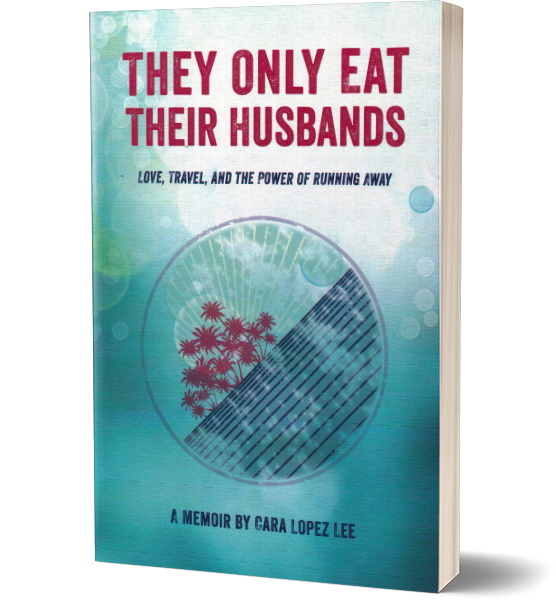I can’t imagine living in Colorado and not hiking. The Rocky Mountains rise from the plains like a command: “Pay attention!” Sometimes the imperative of living get’s lost in the minutiae of life’s demands. That’s when my inner voice shouts, “Forget deadlines! I need mountains!” I don’t dare ignore that voice. That Cara – she can be kind of pushy.
I planned to try a tough hike in the high country this time. But I wake up late, drained by work and financial worries. I want to go back to sleep. No! I’ll end up working, and kick myself for letting the high country escape. I split the difference and grab my “Denver Hiking Guide: 45 walks within 45 minutes of Denver.” I pick a 3.4 mile out-and-back in the foothills: the Mount Falcon Castle Trail.
My favorite summer hikes take me out of sight of civilization. Mount Falcon won’t. Yet it will take me out of sight of my to-do list, and that will do nicely.
I don’t arrive at the parking lot until nearly midday. I worry this might mean risking an afternoon storm, but sunshine prevails for miles. So I step onto the wide path and walk, swinging my arms with that little-girl freedom I only feel on a hike. Surrounding mountains drape their arms over each other’s shoulders, like family posing for a portrait – dressed in casual wildflowers. Already I feel better.

Surrounding mountains drape their arms over each other’s shoulders.
I’ve only walked a third of a mile, when I approach a trio resting on a shaded double-bench: an elderly couple and a young man. I wave. The older man beckons.
“Have a seat.”
“How can I turn that down?” I smile and sit.
They are husband, wife and son. The husband abruptly says, “We have a love story.”
“OK. Let’s have it.” I’m a fan of eccentricity.
He explains that he and his wife married when they were young, but only for a short time. “Her family didn’t like that I was Latino. They were a wealthy, influential family. They said if she didn’t leave me, they’d take her children away.” She obeyed, and they lost track of each other… for 20 years. One day, she phoned him and said, “We used to be married.” Soon after, they married again. That was about 12 years ago.
The wife lived in Denver as a girl and never came to the mountains. After years in Texas, they’ve moved here, and she’s determined to see more. Her life is a reminder: it’s never too late to come back.
I walk on alone, past meadows dusted with lavender blooms, bordered by pine-covered hills, to the Walker Home Ruins.

I walk on alone, past meadows dusted with lavender blooms.
John Brisben Walker came to the frontier city of Denver in 1879. At 32, he’d already led an adventurous life: dropped out of West Point to serve in the Chinese army, earned a PhD from Georgetown, worked as a newspaperman in Washington DC, Pittsburgh and Cincinnati, and made a fortune in West Virginia real estate.
In Denver, he experimented with alfalfa farming, and succeeded. He developed the Highlands neighborhood, built a racetrack, ballpark and other attractions. He went on to buy Cosmopolitan Magazine, when it featured fiction from such literary greats as Mark Twain and Willa Cather.
In 1906, Walker sold Cosmopolitan to William Randolph Hearst, and used the proceeds to buy 4000 acres in Morrison, including what he called “Garden of the Titans,” now known as Red Rocks Amphitheater. Walker sponsored the first Red Rocks concerts; perhaps the most famous featured opera singer Mary Garden, who declared it the finest venue where she’d ever performed.
In 1909, Walker, his second wife Ethel and four children lived in Mount Morrison Hotel, to oversee the building of their dream home on Mount Falcon. I approach all that’s left of that dream: a crooked tower of brick-covered rock that was once a chimney, three rocky frames of blue sky where laughing dinner guests once looked out windows, a crumbling rock wall behind which children once played music. In 1916, Ethel died. In 1918, lightning struck the Walker Home and burned it down.

In 1918, lightning struck the Walker Home and burned it down.
I stand listening to the silence of years. I’ve seen the ruins of a Stone Age village in Scotland and Inca cities in Peru. This ruin has been standing for fewer than a hundred years, yet it speaks to me just as profoundly. I’ve been so worried lately about what’s going to happen next: how I’ll market my latest project without funds, when I’ll find time to create my next project. Here’s a reminder my fear is wasted energy. Walker had cash and time for his dreams, but his wife died and his house burned.
Yet it’s a beautiful place, where life has returned, including yellow mustard flowers and this buzzing insect that won’t leave me alone. It’s not a bee. Is that a stinger? What is this thing?! I backpedal, trip and fall hard on my butt.

It’s a beautiful place, where life has returned.
I readjust my dignity, and head uphill to see another Walker dream: the Summer White House.
Half a mile later I pass a picnic shelter where a group of 12- or 13-year-old girls are finishing lunch and beginning the final uphill push. They’re so engrossed with chattering, gossiping and giggling, I pass them with ease. I stop at a viewpoint overlooking the city. Denver looks tiny and hazy, making the urban world of expectations and productivity look as remote as I’d hoped. The next vantage looks the opposite direction, and an old gent on a bench savors the Rockies lined up for their family photo. One peak wears a snowy cap, the oddball cousin dressed unfashionably out-of-season.
The apparent retiree pulls out his cell phone to call for a stock update. I move on.
Atop a craggy promontory, I spot the white marble cornerstone and two crumbling stone walls of the unfinished Summer White House. Walker envisioned a summer home for the nation’s presidents, overlooking mountains to the left and Great Plains to the right. The view is a stunner, and I give guilty thanks he didn’t succeed, or I wouldn’t be standing here. Several setbacks stopped the project, including his wife’s death, his home’s destruction and World War I.

Atop a craggy promontory stands the marble cornerstone of the unfinished Summer White House.
You might think Walker died a failure. Not so. He urged Coloradans to preserve large tracts of open space, and Mount Falcon Park remains a tribute to that wish. I walk across to a viewpoint overlooking Red Rocks, the most beautiful place where I’ve ever heard live music: another Walker success. From here, the massive rocks are a red exclamation amid the surrounding greenery, dusty haze and blue sky.

I walk across to a viewpoint overlooking Red Rocks: a Walker success.
A mountain biker rests nearby, and he and I admire a paraglider circling above. An exciting way to rise above the daily hustle, but, we agree, too scary. The cyclist says the uphill pedal to get here was tough enough. Hiking here wasn’t half that hard, but my calves ache pleasantly, my skin feels warm, my lungs relaxed and open.
The mountains have done their trick. So has Walker: reminding me of the ephemeral nature of both life’s labors and its rewards. Someday, the only things that will still stand here are red rocks and blue sky. That’s not so bad. In fact, it’s pretty good.




